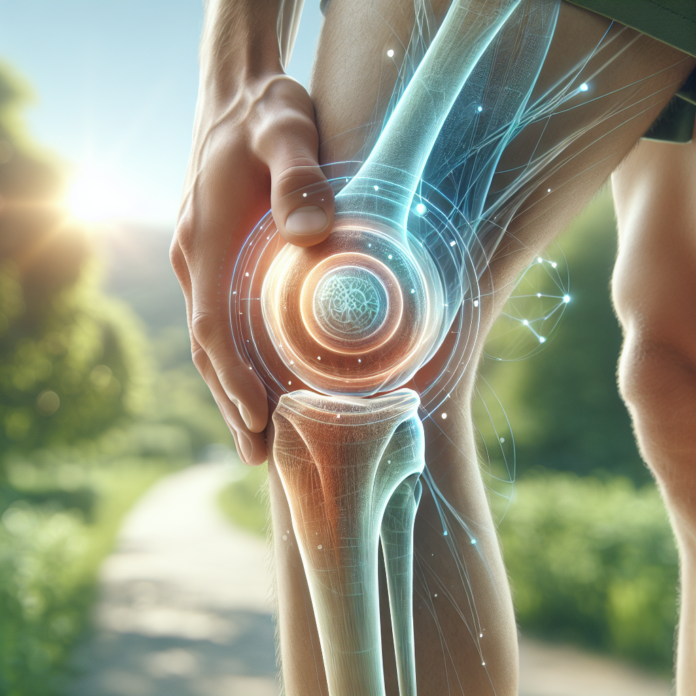“`html
Chronic knee pain after an ACL injury can be a persistent problem, even years after surgery. You might find yourself asking if there’s anything more that can be done to alleviate the discomfort. Enter BPC 157, a peptide gaining attention for its potential in healing musculoskeletal injuries. In this blog, we will expand on insights shared by Dr. David Guyer, an orthopedic surgeon and sports medicine specialist, who explores whether this peptide might be a viable option for those struggling with long-term knee pain. From its origins to its potential regenerative capabilities, this article will dive deeper into what BPC 157 could mean for your recovery and quality of life. Remember, while peptides show promise, they are still considered experimental, so discussing them with your physician is crucial before considering any treatment. Keep reading to uncover the possibilities and limitations of this intriguing peptide therapy.
Understanding BPC 157
BPC 157, or Body Protection Compound 157, is a peptide derived from a protein found naturally in the human stomach lining. It’s known for its potential healing properties, especially concerning musculoskeletal injuries. This peptide has garnered attention due to its possible role in promoting the healing of muscles, tendons, and ligaments. But how does it fare in addressing chronic knee pain, particularly after an ACL injury and subsequent surgery?
The aftermath of an ACL injury often entails a higher likelihood of developing osteoarthritis. Even with surgical intervention, this risk isn’t eradicated. Chronic knee pain is a common consequence, stemming from various factors such as residual joint instability, scar tissue formation, and degenerative changes within the knee joint. This is where BPC 157 comes into the conversation, as it holds theoretical promise in mitigating these issues through its regenerative properties.
Clinical Observations and Limitations
A study cited by Dr. Guyer involved injecting BPC 157 into the knees of 16 patients suffering from knee pain. Although the study reported a notable percentage of patients experiencing pain relief (around 87%), it lacked rigorous scientific standards. Without a control group, blinding, or randomization, the findings provide a suggestion rather than a confirmation of BPC 157’s efficacy.
It’s also crucial to note that some patients in this study received additional peptides, such as thymosin beta-4, further complicating the ability to isolate the effects of BPC 157 alone. Moreover, these injections were administered directly into the knee, as opposed to self-administered subcutaneous injections, which presents challenges in replicating such treatment outside clinical settings.
Potential Benefits
Despite the limitations, some potential benefits of BPC 157 include:
- Reduced Inflammation: BPC 157 may help modulate inflammatory responses, which can lead to reduced pain and swelling.
- Tissue Repair: It might support the recovery of soft tissues by enhancing collagen synthesis, which is beneficial for tendons and ligaments.
- Joint Function: By potentially improving blood flow and cellular repair processes, BPC 157 could contribute to enhanced joint function and mobility.
Considerations and Alternatives
It’s imperative for individuals considering this treatment to consult with a healthcare provider. Peptides like BPC 157 are classified as experimental by the FDA, meaning they are not yet approved for widespread clinical use. A thorough discussion of potential risks, benefits, and the individual’s specific condition is necessary.
For chronic knee pain management, other potential treatments should also be explored. These might include:
- Physical Therapy: A program tailored to strengthen the muscles around the knee, improve flexibility, and support joint function.
- Stem Cell Therapy: This approach can potentially offer more robust regenerative benefits, particularly in cases of osteoarthritis.
- Lifestyle Modifications: Weight management and low-impact exercise can alleviate stress on the knee joint, further reducing pain and enhancing quality of life.
- Pharmaceutical Interventions: Non-steroidal anti-inflammatory drugs (NSAIDs) or other analgesics might be recommended for pain management.
In summary, while BPC 157 offers intriguing possibilities for dealing with chronic knee pain post-ACL injury, its use is still under exploration. The peptide therapy landscape is continually evolving, and ongoing research will be crucial in determining its viability as a standard treatment option. If considering peptides, partnering with a knowledgeable healthcare provider is essential to ensure safety and the best chance of a favorable outcome.
“`
